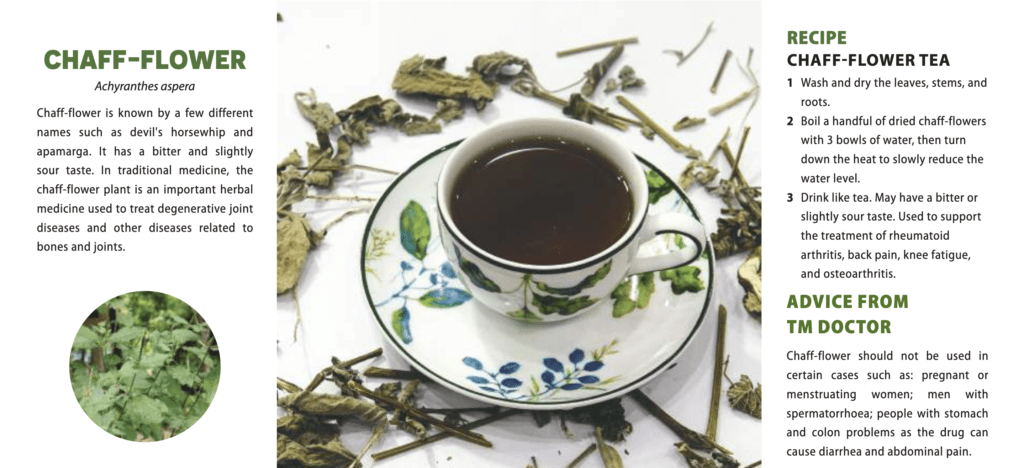Claremont, Calif. (January 4, 2023)—In collaboration with Pitzer and Claremont Colleges alumni, Animals Asia, the Traditional Medical Association of Vietnam, and The Rick and Susan Sontag Center for Collaborative Creativity (the Hive) have published a book of local women’s herbal remedies. This book presents an alternative to the practice of bear bile farming that is harming the bear population in Vietnam. In October, the group hosted a launch party to celebrate printing 1,000 copies of Herbal Recipes for Health Improvement with alternative treatments to animal medicine.
The Phung Thuong region is one of the last hotspots of bear farmers in Vietnam. Bear farmers extract bile from Asiatic black bears’ gallbladders to treat inflammatory, liver, and degenerative ailments. The nonprofit Animals Asia partnered with the Hive—a hub for creative innovation at The Claremont Colleges—to use human-centered design to empathize and collaborate with Phung Thuong residents to explore herbal alternatives in ways that resonated with the community.
“Using human-centered design with Animals Asia turned out to be one of the most transformative experiences of my life,” said Pitzer alum Lena Tran ’18, who was on the Hive’s initial 2018 cohort for this project. Tran’s cohort researched people that they felt were the most influential in the village in terms of health decisions.
“From co-designing with community members to prototyping ideas for collective care, I learned how to advocate for community voices, facilitate creative problem solving, and ultimately leverage design for social change,” said Tran.
Over three summers from 2018 through 2020, students such as Tran worked on various prototypes until they landed on an herbal remedies book highlighting recipes from older village women. EnviroLab Asia, a Claremont Colleges initiative that addresses environmental issues in Asia through cross-disciplinary research and experiential learning, provided funding for students in the project.
“EnviroLab was so supportive,” said the Hive’s Director of Global Social Impact Shannon Randolph. “They funded student and faculty research, supported publication of papers on the design research, and covered printing costs for the herbal remedies book.”
Randolph’s favorite part of the book launch was seeing the pride in the women whose expertise was recognized by traditional doctors and prominent leaders thanks to this book.
“There is an environmental justice component to this work; women in communities outside of the city were celebrated as health experts by the national media, traditional doctors, and men in the community,” said Randolph.
Recipes from the book include chaff-flower tea, aromatic ginger massage alcohol, and a wild betel foot bath to treat osteoarthritis; purple fruited pea eggplant tea to enhance liver function; steamed chive with rock sugar or honey for respiratory ailments; guava leaf tea and H’Mong apple rice wine to reduce blood lipids; and more.
 Chaff-flower tea can be used instead of bear bile to treat the inflammation and pain from osteoarthritis
Chaff-flower tea can be used instead of bear bile to treat the inflammation and pain from osteoarthritis
The Hive’s three research teams in Vietnam included four Pitzer alumni—Tran, Kimberly Ha ’18, Mai Nguyen ’19, and Olivia Hewitt ’22—as well as other Claremont Colleges alumni. Randolph talked about why so many Pitzer students have resonated with the Hive’s work.
“I’ve found Pitzer students to possess a keen curiosity for sustainability problem solving,” said Randolph. “They are drawn to programs like this Vietnam Health Design program because they get to imagine and work with local communities to design better futures while seeing the real-world constraints and needs.” You can learn more about the project on vietherb.org.